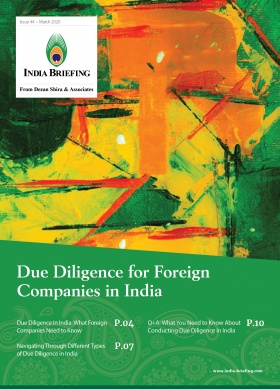India’s Taxpayers, FPI, Offshore Investors Promised Relief: Parliament Passes New Bill
- The Taxation and Other Laws (Relaxation and Amendment of Certain Provisions) Bill, 2020 extends deadlines for filing GST and income tax returns and for linking PAN and Aadhaar identification.
- Income Tax Act amended to extend the tax benefits given to donations to Prime Minister’s National Relief Fund to the PM-CARES Fund as well.
- Surcharge on dividend income of Foreign Portfolio Investors capped at 15 percent.
- Profits and business income earned by foreign funds in Gujarat’s International Financial Services Centre at Gift City could be tax exempt.
India’s parliament passed The Taxation and Other Laws (Relaxation and Amendment of Certain Provisions) Bill, 2020 yesterday, in a major move to reduce tax compliance stress amid the ongoing coronavirus pandemic. The Bill was introduced in the lower house on September 18, 2020, which approved it on September 19 followed by the approval of the upper house on September 22.
The Bill will replace The Taxation and other Laws (Relaxation of Certain Provisions) Ordinance, 2020 brought into effect in March and will make changes to specified direct and indirect tax laws. The specified laws include certain Finance Acts, Central Excise Act, 1944, Customs Act, 1962, The Direct Tax Vivad se Vishwas Act, 2020, the Black Money (Undisclosed Foreign Income and Assets) and Imposition of Tax Act, 2015, and Prohibition of Benami Property Transactions Act, 1988.
The Bill also proposes to empower the central government to remove any difficulty up to a period of two years and provide for repeal and savings of the Taxation and Other Laws (Relaxation of Certain Provisions) Ordinance, 2020.
Key measures in the new tax relief bill are stated below. For more information and assistance for foreign firms doing business in India, please feel free to email us at india@dezshira.com.
Compliance relief
The deadlines for filing GST and income tax returns and for linking PAN and Aadhaar identification have been extended.
Tax benefits for donations to PM-CARES Fund
The same tax treatment will be applied to donations made to the PM-CARES Fund as currently available to taxpayers donating to the Prime Minister’s National Relief Fund. Relevant provisions regulating this tax benefit have been amended in the Income Tax Act (I-T Act).
Donations to the PM-CARES Fund will be eligible for 100 percent deduction under section 80G (I-T Act) without any qualifying limit.
Investment facilitation – tax exemption for offshore funds in IFSC, Gift City (Gujarat)
Also included in the Bill, the government has proposed the introduction of a new regime for the taxation of offshore funds that choose International Financial Services Centre (IFSC), Gift City, Gandhinagar, Gujarat.
“Further, the Bill proposes amendments to the Income-tax Act, 1961 which , inter alia, include providing of tax incentive for Category-III Alternative Investment Funds located in the International Financial Services Centre to encourage relocation of foreign funds to the IFSC, deferment of new procedure of registration and approval of certain entities introduced through the Finance Act, 2020…”
Thus, as per the proposed amendments to the I-T Act, profits and business income earned by such funds from Gift City could be tax exempt. This would function as a special incentive to convince foreign funds to shift their base from Singapore or Mauritius to the IFSC, Gift City. The proposed changes are comparable to the tax treatment of foreign funds domiciled in offshore fund jurisdictions, such as Singapore and Ireland.
Previously, foreign funds investing in India had to state where they wanted to pay taxes, which would be accepted only if they had a business registered in the chosen jurisdiction, like Singapore, and not on the basis of which jurisdiction had a lower tax rate.
Surcharge capped at 15 percent on dividend income for FPI investors
The Bill amends the Finance Act, 2020 to clarify the capping of surcharge at 15 percent on the dividend income of Foreign Portfolio Investors (FPIs).
Previously, the dividend income earned by FPIs was subject to a 37 percent surcharge that took effective dividend tax rates to nearly 29 percent (20 percent dividend tax plus surcharge). According to tax experts, the excess tax paid by FPIs until the enactment of the Bill may be adjusted against their capital gains tax liability in India. (Once the Bill is enacted, the tax rate would be effective from April 1, 2020.)
Tax re-registration for charitable trusts/NGOs
The deadline for this re-registration has now been extended to April 1, 2021. (Previously, it was June 1, 2020 but was then extended to October 10, 2020.)
Under the Finance Act 2020, charitable trusts and tax-exempt institutions have been mandated to reapply for income tax registration.
The affected institutions, including NGOs, are those who are either registered or approved under Section 12, Section 12AA, Section 10 (23C), and Section 80G of the I-T Act. These institutions will have to re-register under Section 12AB.
Section 12AA that established the procedure for registration of a charitable trust will cease to be applicable; instead, a new section 12AB has been inserted describing the procedure for new registration.
Upon fresh registration, the income tax department will issue an electronically generated Unique Registration Number (URN) to all charitable and religious institutions.
This is to facilitate their electronic registration, which will “simplify tax compliance for new and existing charity institutions”, according to the Finance Minister, Nirmala Sitharaman. The re-registration or electronic registration will also enable the government to create a national register of all charitable and religious institutions, which will in turn help eliminate the scope for tax fraud and malpractice.
Faceless tax assessment
The Bill also seeks to make faceless assessment applicable to at least eight processes under the I-T Act, including for the collection and recovery of tax and gathering of information. (The Bill proposes “eliminating the interface between the income-tax authority and the assessee or any other person, to the extent technologically feasible…”)
About Us
India Briefing is produced by Dezan Shira & Associates. The firm assists foreign investors throughout Asia from offices across the world, including in Delhi and Mumbai. Readers may write to india@dezshira.com for business support in India.
- Previous Article Corporate India Cautiously Optimistic in July-September Quarter: CII Business Outlook Survey
- Next Article Indiens Steuerzahler, FPI, Offshore-Investoren versprachen Erleichterungen: Parlament verabschiedet neuen Gesetzentwurf







